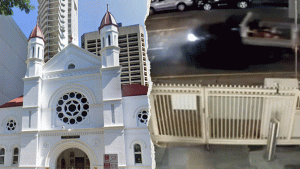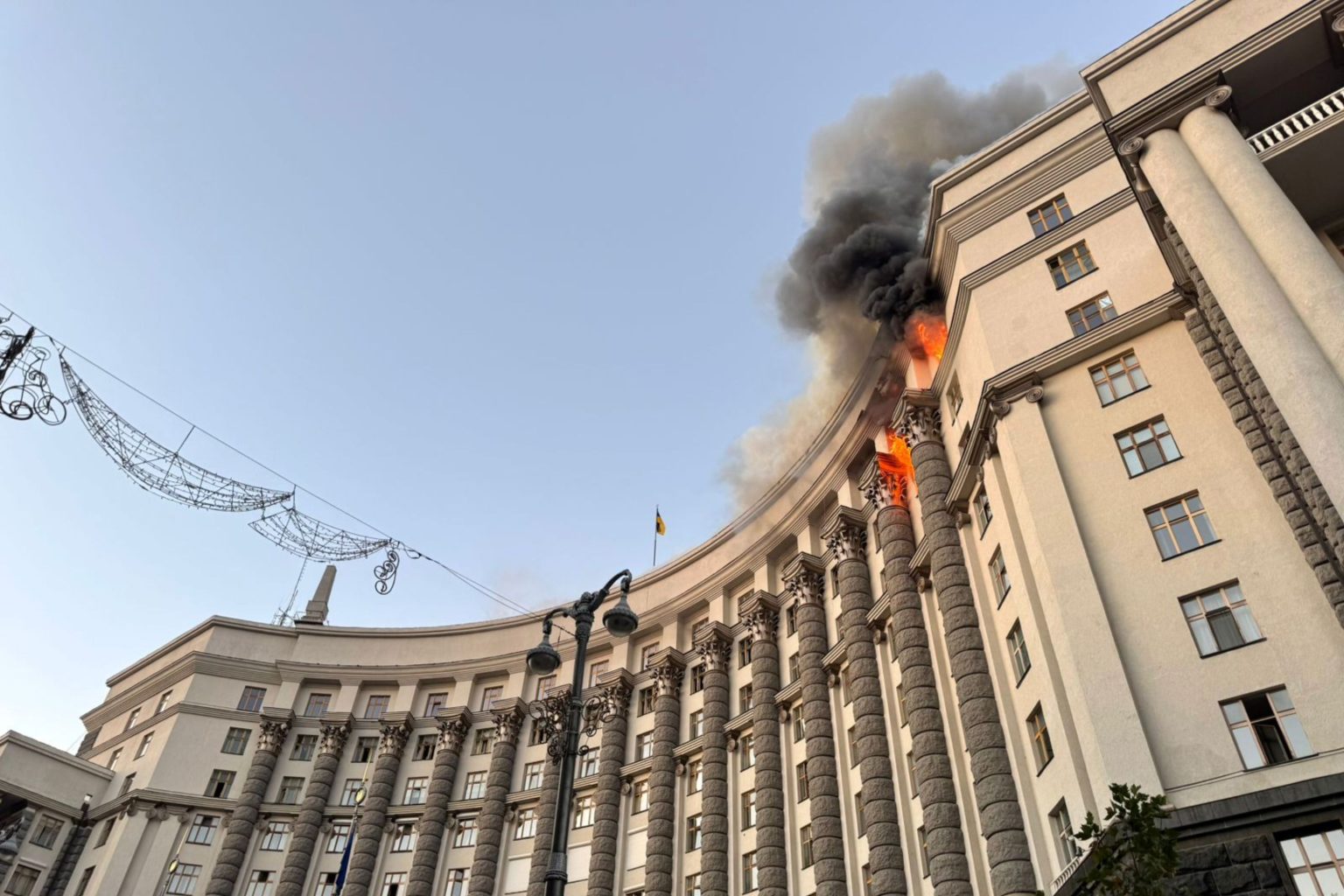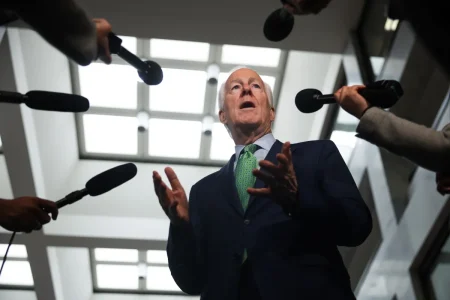Russia Strikes Kyiv Government Building for First Time in War
In a significant escalation of the ongoing conflict, Russian forces have damaged a main Ukrainian government building in Kyiv for the first time since the war began. The Cabinet of Ministers building, which houses the offices of Ukrainian government officials, was struck during what Ukrainian officials described as the largest Russian drone assault since the full-scale invasion began in 2022.
Ukrainian President Volodymyr Zelensky confirmed the attack on social media, sharing images of smoke billowing from the structure’s upper floors. “For the first time, the government building was damaged by an enemy attack, including the roof and upper floors,” Ukrainian Prime Minister Yulia Svyrydenko wrote on Telegram following the Sunday assault. The strike represents a troubling new development in Russia’s targeting strategy, as administrative government buildings in the capital had previously been spared from direct attacks despite ongoing aerial bombardments of Kyiv’s infrastructure.
The timing of this unprecedented strike comes amid increasing pressure on Ukraine’s military positions in the east of the country and growing concerns about the sustainability of Western military aid. While the Cabinet building was largely empty during the weekend assault, the symbolic significance of successfully hitting a central government facility cannot be overstated. It demonstrates Russia’s continued ability to penetrate Ukrainian air defenses despite significant Western investments in bolstering Kyiv’s protective systems. A spokesperson for Ukraine’s air force confirmed to international media that Sunday’s operation constituted the most extensive drone attack Russia has launched against Ukraine since February 2022.
The psychological impact of such strikes extends beyond physical damage, representing an attempt to undermine Ukrainian morale and governance capacity. Throughout the conflict, President Zelensky has emphasized the importance of maintaining government functions despite Russian aggression, with many ministries adapting to wartime operations through distributed work arrangements and heightened security protocols. This attack, however, brings the war directly to the doorstep of Ukraine’s administrative center, potentially complicating government operations and requiring additional security measures that could further strain resources.
International reaction to the strike has been swift, with Ukraine’s allies condemning what they characterize as an escalation in Russia’s targeting of civilian infrastructure and government facilities. Military analysts suggest the attack may indicate a shift in Russian strategy, potentially signaling increased willingness to target previously avoided government buildings and other symbolic structures in the Ukrainian capital. The attack also raises questions about intelligence failures or potential new capabilities in Russia’s drone and missile technology that enabled such a significant strike against a presumably well-protected target in central Kyiv.
As emergency services worked to contain the fire and assess structural damage to the government building, Ukrainian officials remained defiant, emphasizing that government operations would continue uninterrupted despite the attack. This latest development occurs against the backdrop of Ukraine’s ongoing counteroffensive efforts and diplomatic initiatives to secure additional international support. With fighting intensifying in multiple regions and critical infrastructure increasingly targeted, the strike on the Cabinet of Ministers building highlights the war’s evolution into a more comprehensive assault on Ukraine’s governing capacity and national resilience, raising concerns about further escalation in the months ahead.















